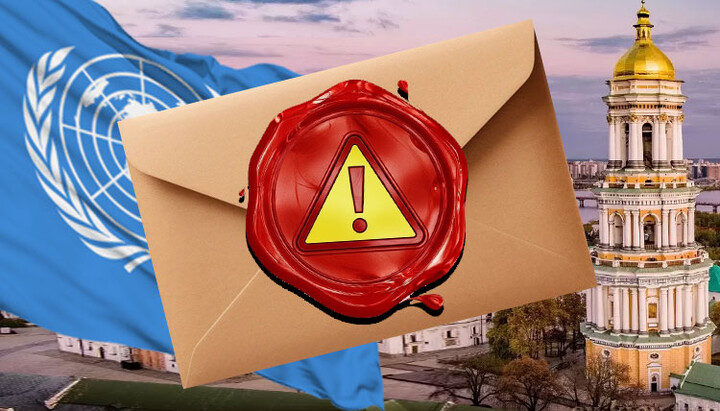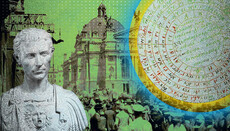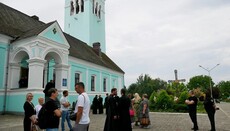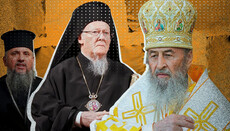UN experts’ letter in defense of UOC: What consequences could follow?

Seven UN special rapporteurs have sent a letter to the Ukrainian authorities demanding clarification of their actions against the UOC. What does this mean?
The UN published a letter by Special Rapporteurs on human rights, outlining systematic violations by the Ukrainian government of its international obligations, particularly in the field of freedom of religion. Ukraine has been given 60 days to provide an official explanation, which will then be published on the UN website. If Ukraine refuses, the matter may be referred to international human rights bodies.
The international legal status of the letter
This letter is a so-called public “Allegation Letter (AL)”. Such letters are drafted and signed by one or more independent experts (Special Rapporteurs/Independent Experts) mandated to carry out “Special Procedures” of the UN Human Rights Council. The title lists their mandates, indicating the particular areas of authority. The fact that seven experts signed this letter shows that Ukraine’s violations of its obligations are systemic, covering not just one but multiple areas of human rights.
Independent experts are appointed by the Human Rights Council but do not act as official representatives of the Council. Rather, they function as independent experts authorized to monitor human rights situations, prepare thematic and country reports, communicate with state authorities, send “allegation letters,” and so forth.
Allegation Letters respond to complaints and other information received by the Human Rights Council about possible violations. In such letters, experts describe the alleged violations, present the facts available to them, and request explanations, as well as demand measures to stop the violations and conduct investigations. States are normally expected to reply. Until then, the contents may remain confidential or may be published. Publication before receiving a response usually indicates either that the state is unwilling to cooperate or that the experts consider the problems serious and the facts credible.
These letters are non-binding and carry no legal sanctions. However, they have considerable political weight, can serve as instruments of international pressure, may be included in official UN reports, and can even be cited in national or international court proceedings.
Content of the letter and key points
The authors state that the UOC is allegedly facing discrimination in relation to its religious communities, including criminal prosecution of clergy, believers, and those seeking to document or legally defend them. This is linked to the law of August 20, 2024, “On the Protection of the Constitutional Order in the Sphere of Religious Organizations”, which provides a legal basis for forced dissolution and confiscation of property.
The experts highlighted several violations of freedom of religion:
- Forced dissolution of religious communities and legislative measures – i.e., unlawful transfers of parishes to the OCU and seizures of churches.
- Arrests and criminal prosecution of clergy and believers, including Metropolitan Theodosiy of Cherkasy and Kaniv, Metropolitan Pavel of the Kyiv-Pechersk Lavra, Metropolitan Arseniy of the Sviatohirsk Lavra, Metropolitan Lonhin of Bancheny, Fr. Yevhen Koshilnyk, and others.
- Confiscation of church property, such as St. Michael’s Cathedral in Cherkasy, the Yelets Monastery in Chernihiv, and others.
- Persecution of journalists, lawyers, and human rights defenders; unlawful arrests and suppression of free speech.
- Use of vague ideological categories, particularly the "Russkiy Mir" [“Russian World”], as grounds for unlawful persecution.
The experts demand that the Ukrainian government explain these and other cases of violations, report on measures taken to protect citizens’ rights, and specify how violated rights – including property rights – can be restored.
The letter ends with a diplomatic but firm formula:
“We respectfully urge Your Excellency’s Government to take all necessary interim measures to prevent further reprisals or harm against UOC clergy, believers, and those defending them, ensuring full respect for the rights to freedom of religion or belief, freedom of expression, and due process. We further encourage Your Excellency’s Government to establish clear guidelines precluding the misuse of national security or counter-extremism legislation to curtail legitimate religious activity, in line with international human rights standards.”
Three key points stand out:
International law, not national law – The experts judge events not by Ukrainian legislation but by Ukraine’s international obligations under treaties and conventions. Domestic laws can be changed by parliament, but international law cannot be easily altered.
Non-derogable rights – The experts insist that freedom of religion belongs to the category of human rights that cannot be restricted even under martial law. This counters the Ukrainian authorities’ frequent argument that war justifies violations of UOC believers’ rights.
Systemic violations – The fact that seven experts signed the letter indicates that reports of violations in Ukraine are numerous, systemic, and extend beyond freedom of conscience narrowly understood, affecting judicial protection, property rights, and more.
Possible consequences
While the letter does not itself impose sanctions or legal consequences, it amounts to an official warning to the international community that Ukraine is systematically violating human rights. The reliance on international law means the letter could be used as an authoritative interpretation of standards and as an argument in international debates.
It may be cited widely – by international organizations (governmental and non-governmental), foreign parliaments, media outlets, and NGOs. It can serve as an official source in press releases, parliamentary reports, diplomatic notes, and more. Even though non-binding, the facts presented in the letter can be referenced as formally established.
If the UN Human Rights Council finds Ukraine’s reply unsatisfactory or if no reply is given, it may initiate further steps within the framework of Special Procedures: requests for monitoring visits, thematic reports, inclusion in annual reviews, etc.
Moreover, not only UN bodies but also foreign governments, parliaments, and diplomatic missions may demand explanations from Ukraine. The letter can be used to increase political and diplomatic pressure. Considering that more European countries are beginning to criticize Ukraine’s policies, this letter provides a convenient pretext for intensifying such criticism or reducing international assistance. Some partners might require additional human rights guarantees or even tie aid programs to compliance with human rights obligations.
Ideally, Ukraine should not only respond properly but also eliminate the violations detailed in the letter. Doing so would strengthen Ukraine’s international image and authority and improve its domestic situation.
Why does the government not take this path? For the same reason it commits the very violations described in the UN letter. It seems those in power think not of Ukraine, but of advancing their own policies, which have little to do with the country’s true interests.











